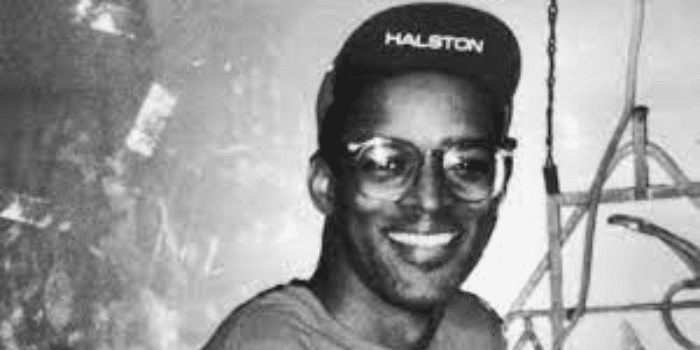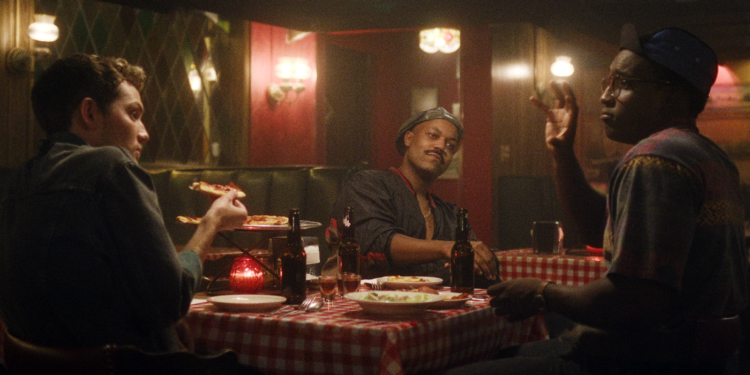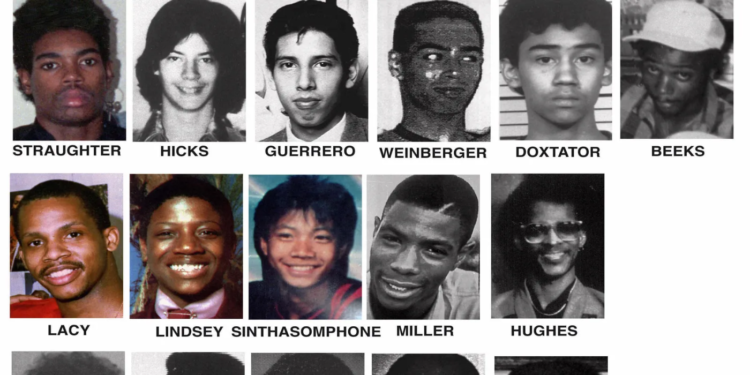In criminal history, few names evoke as much horror and fascination as Jeffrey Dahmer. Known as the “Milwaukee Monster,” Dahmer terrorized the city between 1978 and 1991, committing a series of gruesome murders that shocked the world. Among his victims was Hughes, a 31-year-old deaf Black man from Madison, Wisconsin.
The Netflix drama series, Monster: The Jeffrey Dahmer Story, which starred Evans Peter and featured Rodney Burford as Hughes, sheds light on Hughes’ life and tragic death. Still, it is essential to separate fact from fiction and delve into the true story of Dahmer’s victim. Without further ado, here is a closer look at Tony Hughes.
Tony Hughes: A Life Marred by Tragedy

Born on August 26, 1959, Hughes never had an easy life from the start and as an infant, he suffered permanent hearing loss due to medication he received as a child. Despite this setback, Hughes was described by his mother, Shirley Peter, as an outgoing and happy person who made fast friends with anyone he encountered. He had dreams of becoming a model and to that effect, he moved to Madison to pursue his aspirations while attending college.
However, Hughes faced challenges in finding employment due to his disability. Eventually, he found work at a clothing store where he communicated with his manager using sign language. Hughes also embraced his identity as a gay man and frequented gay bars in the area. Unfortunately, he tragically encountered Dahmer in one of those bars.
The Unfortunate Encounter With Jeffrey Dahmer

According to accounts from the Netflix series, Monster, Tony Hughes met Jeffrey Dahmer at a gay bar in Milwaukee in May 1991. Dahmer, known for luring his victims with promises of sex and sexual favors, reportedly proposed a nude photoshoot to Hughes. Contrary to Dahmer’s account, witnesses claimed that Hughes and Dahmer had known each other for over a year before Hughes’ untimely demise. Needless to say, the latter account only makes his demise more tragic.
It was on the night of May 24, 1991, that Hughes was last seen at the 219 Club in Milwaukee. Shirley, unable to contact her son, became increasingly worried, knowing only the first name of his friend —Jeffrey. Tragically, it was Dahmer who had taken Hughes back to his apartment, where he drugged and ultimately murdered him. Dahmer’s heinous acts extended to dismembering Hughes’ body and retaining his skull as a macabre keepsake. It was pretty much his method of operation as far as his gruesome murders were concerned.
The Impact of Tony Hughes’ Murder

The loss of Tony Hughes devastated his family and left a lasting impact on his friends and loved ones as a whole. Shirley attended Dahmer’s trial, where she confronted the man responsible for her son’s death. Her emotional recitation of a poem during the victim impact statement demonstrated the profound pain and anguish she experienced. Her words resonated with the court, likely playing a significant role in the severe sentencing Dahmer received.
While Hughes’ life and legacy were tragically cut short, his memory lives on through the efforts of his loved ones. The Netflix series, Monster: The Jeffrey Dahmer Story, attempts to honor Hughes’ life by shedding light on the systemic injustices that allowed Dahmer’s crimes to go unnoticed for so long. However, it is important to acknowledge the concerns raised by Hughes’ mother and other victims’ families regarding the accuracy and portrayal of their loved ones’ stories.
4. Remembering Tony Hughes and Honoring His Legacy

While Hughes’ life is shrouded in tragedy, it’s essential to remember him as more than a victim. He was a vibrant individual with dreams, aspirations, and a loving family. His story serves as a stark reminder of the horrors inflicted by Dahmer and the need to ensure justice for all victims. While exploring the depths of Dahmer’s crimes, it is vital not to forget the lives lost and the families forever affected.
Hughes’ memory lives on, and thankfully, Dahmer was caught and convicted of his crimes. Still, this does not eliminate the clear vices in society, especially for minorities. The systemic issues that allow such crimes to occur need to be addressed more often. In the end, it is not Dahmer’s twisted desires that define Hughes but the love and resilience of those who continue to remember him.
 Follow Us
Follow Us




